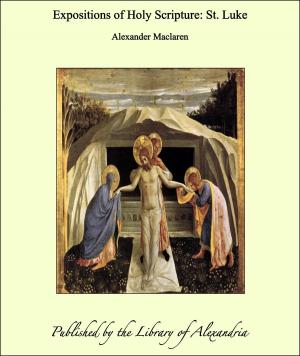| Author: | Ernest Scott | ISBN: | 9781465531384 |
| Publisher: | Library of Alexandria | Publication: | March 8, 2015 |
| Imprint: | Language: | English |
| Author: | Ernest Scott |
| ISBN: | 9781465531384 |
| Publisher: | Library of Alexandria |
| Publication: | March 8, 2015 |
| Imprint: | |
| Language: | English |
FAMILY, YOUTH and INFLUENCES Jean-Francois Galaup, Comte De Laperouse, was born at Albi, on August 23, 1741. His birthplace is the chief town in the Department of Tarn, lying at the centre of the fruitful province of Languedoc, in the south of France. It boasts a fine old Gothic cathedral, enriched with much noble carving and brilliant fresco painting; and its history gives it some importance in the lurid and exciting annals of France. From its name was derived that of a religious sect, the Albigeois, who professed doctrines condemned as heretical and endured severe persecution during the thirteenth century. But among all the many thousands of men who have been born, and have lived, and died in the old houses of the venerable city, none, not even among its bishops and counts, has borne a name which lives in the memory of mankind as does that of the navigator, Laperouse. The sturdy farmers of the fat and fertile plain which is the granary of France, who drive in to Albi on market days, the patient peasants of the fields, and the simple artisans who ply their primitive trades under the shadow of the dark-red walls of St. Cecile, know few details, perhaps, about the sailor who sank beneath the waters of the Pacific so many years ago. Yet very many of them have heard of Laperouse, and are familiar with his monument cast in bronze in the public square of Albi. They speak his name respectfully as that of one who grew up among their ancestors, who trod their streets, sat in their cathedral, won great fame, and met his death under the strange, distant, southern stars. His family had for five hundred years been settled, prominent and prosperous, on estates in the valley of the Tarn. In the middle of the fifteenth century a Galaup held distinguished office among the citizens of Albi, and several later ancestors are mentioned honourably in its records. The father of the navigator, Victor Joseph de Galaup, succeeded to property which maintained him in a position of influence and affluence among his neighbours. He married Marguerite de Resseguier, a woman long remembered in the district for her qualities of manner and mind. She exercised a strong influence over her adventurous but affectionate son; and a letter written to her by him at an interesting crisis of his life, testifies to his eager desire to conform to his mOther's wishes even in a matter that wrenched his heart, and after years of service in the Navy had taken him far and kept him long from her kind, concerning eyes
FAMILY, YOUTH and INFLUENCES Jean-Francois Galaup, Comte De Laperouse, was born at Albi, on August 23, 1741. His birthplace is the chief town in the Department of Tarn, lying at the centre of the fruitful province of Languedoc, in the south of France. It boasts a fine old Gothic cathedral, enriched with much noble carving and brilliant fresco painting; and its history gives it some importance in the lurid and exciting annals of France. From its name was derived that of a religious sect, the Albigeois, who professed doctrines condemned as heretical and endured severe persecution during the thirteenth century. But among all the many thousands of men who have been born, and have lived, and died in the old houses of the venerable city, none, not even among its bishops and counts, has borne a name which lives in the memory of mankind as does that of the navigator, Laperouse. The sturdy farmers of the fat and fertile plain which is the granary of France, who drive in to Albi on market days, the patient peasants of the fields, and the simple artisans who ply their primitive trades under the shadow of the dark-red walls of St. Cecile, know few details, perhaps, about the sailor who sank beneath the waters of the Pacific so many years ago. Yet very many of them have heard of Laperouse, and are familiar with his monument cast in bronze in the public square of Albi. They speak his name respectfully as that of one who grew up among their ancestors, who trod their streets, sat in their cathedral, won great fame, and met his death under the strange, distant, southern stars. His family had for five hundred years been settled, prominent and prosperous, on estates in the valley of the Tarn. In the middle of the fifteenth century a Galaup held distinguished office among the citizens of Albi, and several later ancestors are mentioned honourably in its records. The father of the navigator, Victor Joseph de Galaup, succeeded to property which maintained him in a position of influence and affluence among his neighbours. He married Marguerite de Resseguier, a woman long remembered in the district for her qualities of manner and mind. She exercised a strong influence over her adventurous but affectionate son; and a letter written to her by him at an interesting crisis of his life, testifies to his eager desire to conform to his mOther's wishes even in a matter that wrenched his heart, and after years of service in the Navy had taken him far and kept him long from her kind, concerning eyes















